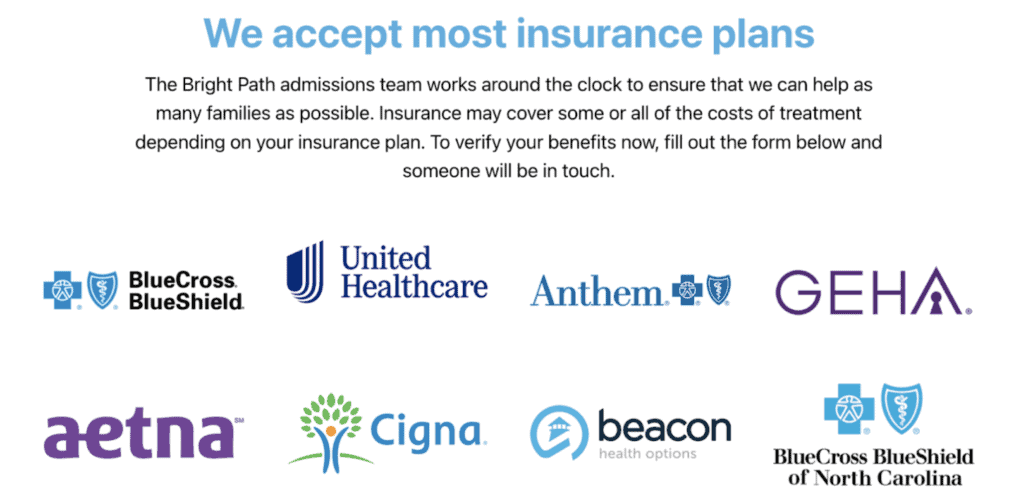
Teenage addiction is a growing concern that affects families and communities worldwide. Adolescents face unique challenges when it comes to substance abuse, including peer pressure, emotional instability, and the influence of social media. Rehab centers with specialized programs for teens offer the necessary tools and environment to address these issues effectively, helping teenagers recover and rebuild their lives. At Addiction Helpline America, we are dedicated to connecting families with trusted rehab facilities tailored to the needs of teenagers.
These programs do more than just treat addiction; they help teens rediscover their potential, repair family relationships, and build a foundation for a healthier future. Specialized care acknowledges the complexity of teenage years, ensuring that treatment is not only effective but also compassionate and age-appropriate.
The Scope of Teen Addiction: Understanding the Problem
Teenagers are particularly vulnerable to addiction due to their stage of brain development and exposure to high-risk situations. Commonly abused substances among teens include alcohol, marijuana, prescription drugs, and vaping products. Behavioral addictions, such as gaming and social media dependency, are also on the rise. Recognizing the signs of addiction—such as changes in behavior, academic decline, and physical symptoms—is crucial for early intervention. Untreated addiction can lead to severe consequences, including mental health disorders, strained family relationships, and academic failure.
Societal pressures also exacerbate addiction risks for teens. From the influence of social media trends to stress from academic or athletic performance expectations, these external factors often contribute to unhealthy coping mechanisms. Raising awareness and promoting open communication can go a long way in preventing addiction in adolescents.
Why Teens Require Different Rehab Programs than Adults
Adolescents have distinct emotional and developmental needs that differ significantly from those of adults. A teenager’s brain is still maturing, making them more susceptible to the effects of substances and less equipped to make rational decisions. Specialized teen rehab programs focus on addressing these unique challenges by offering:
- Age-appropriate therapy sessions.
- Emphasis on peer group dynamics and family involvement.
- Interventions tailored to teens’ developmental stages.
Unlike adult programs that often emphasize independence, teen-focused rehab emphasizes guidance, structure, and family participation. This approach ensures that treatment is developmentally appropriate and fosters a supportive environment where teenagers can thrive. Programs also incorporate educational elements to help teens understand the long-term consequences of their choices and encourage positive behavioral changes.
Rehab centers for teens also prioritize creating safe spaces where adolescents feel understood. Therapists and counselors in these programs often specialize in adolescent psychology, ensuring an empathetic and effective approach to treatment.
Features of Rehab Centers Specializing in Teen Programs
Rehab centers that focus on teenagers often provide:
- Age-Specific Counseling: Sessions that resonate with teens, addressing their specific struggles.
- Family Therapy: Involving parents and guardians to create a supportive home environment.
- Educational Support: Ensuring teens stay on track academically during recovery.
- Recreational Activities: Promoting healthy habits and social skills through sports, art, and music therapy.
These centers are designed to create a nurturing environment where teens feel safe to express themselves and address their issues. Recreational activities play a pivotal role in breaking the monotony of traditional therapy and giving teens a sense of purpose and accomplishment. The integration of fun, learning, and healing ensures a balanced approach to recovery.
Additionally, teen rehab centers often include mentorship programs, pairing adolescents with positive role models who inspire and guide them through the recovery process. This added layer of support can make a significant difference in a teen’s journey toward sobriety.
Types of Teen-Specific Treatment Programs
Rehab programs for teens come in various types, including:
- Inpatient Rehab Programs: Full-time residential care offering structured treatment for severe addiction cases.
- Outpatient Programs: Flexible treatment schedules allowing teens to continue living at home and attending school.
- Wilderness Therapy: Outdoor-based programs combining nature and therapy to build resilience and self-confidence.
- Dual Diagnosis Treatment: Addressing co-occurring mental health issues alongside addiction.
- Residential Treatment Centers: Comprehensive care with a focus on therapy and academics.
Each program type has its unique strengths. Inpatient programs, for instance, provide an immersive environment free from distractions, while outpatient programs allow teens to maintain their daily routines. Wilderness therapy introduces teens to the healing power of nature, teaching them self-reliance and teamwork. Families should evaluate their teen’s specific needs and circumstances to choose the most suitable option.
Therapy Approaches Used in Teen Rehab Programs
Effective rehab programs for teens often include:
- Individual Counseling: One-on-one sessions to explore personal challenges.
- Cognitive Behavioral Therapy (CBT): Helping teens identify and change negative thought patterns.
- Dialectical Behavior Therapy (DBT): Teaching emotional regulation and interpersonal skills.
- Group Therapy: Building peer support networks and fostering shared experiences.
- Experiential Therapies: Engaging teens in creative and physical activities like art and adventure therapy.
Therapy is the backbone of recovery, offering teens a safe space to process their feelings and develop coping strategies. Group therapy, in particular, allows teens to connect with others facing similar struggles, reducing feelings of isolation. Experiential therapies engage teens in non-traditional healing methods, making recovery more relatable and impactful.
Family therapy is another crucial component, helping repair relationships strained by addiction. These sessions teach communication skills and establish healthy boundaries, fostering a supportive home environment for long-term recovery.
The Role of Education in Teen Rehab Centers

One of the main concerns for parents is ensuring their child doesn’t fall behind academically during treatment. Rehab for Teens often collaborates with schools or provide on-site education to help adolescents maintain their studies. This balance between recovery and education ensures that teens are prepared to reintegrate into their regular routines post-treatment.
Incorporating academics into rehab programs reduces the stress teens may feel about falling behind their peers. It also instills a sense of normalcy and routine, which is vital for emotional and mental well-being during recovery. Many centers employ qualified educators who specialize in working with students in recovery.
Addressing Co-Occurring Disorders in Teens
Many teenagers struggling with addiction also face mental health challenges such as anxiety, depression, or ADHD. Dual diagnosis treatment is essential for addressing both issues simultaneously, providing teens with the tools they need to achieve long-term recovery and emotional stability.
Teens with co-occurring disorders often require more intensive treatment plans that integrate therapy, medication, and lifestyle changes. Addressing underlying mental health issues not only aids in recovery but also improves the teen’s overall quality of life, reducing the likelihood of relapse.
How to Identify a Quality Teen Rehab Center
When searching for a rehab center for your teenager, consider the following:
- Accreditation: Ensure the facility meets industry standards.
- Experienced Staff: Look for licensed therapists and counselors specializing in adolescent care.
- Personalized Treatment Plans: Programs should be tailored to your teen’s specific needs.
- Family Involvement: Centers that incorporate family therapy often achieve better outcomes.
- Safe Environment: Facilities should prioritize the safety and comfort of their residents.
Visiting the facility, speaking with staff, and reviewing success stories from past clients can help parents make informed decisions. Quality centers also offer transparency regarding their methods, costs, and expected outcomes, giving families confidence in their choice.
Challenges Teens Face During Rehab
Recovering from addiction is never easy, and teens may encounter:
- Stigma: Fear of judgment from peers and society.
- Emotional Struggles: Managing feelings of guilt, shame, or anxiety.
- Resistance: Initial reluctance to participate in treatment programs.
Rehab centers address these challenges through supportive counseling, peer group sessions, and activities designed to boost self-esteem. Open communication between teens, counselors, and family members ensures a collaborative approach to overcoming these hurdles.
The Role of Parents in Teen Rehab
Parents play a vital role in their child’s recovery journey. Key responsibilities include:
- Supporting Treatment: Encouraging participation in therapy and group sessions.
- Creating a Positive Environment: Ensuring a stable and supportive home life.
- Setting Boundaries: Establishing clear rules and expectations to prevent relapse.
- Continuing Communication: Keeping open lines of dialogue to build trust and understanding.
Parental involvement doesn’t end after treatment. Continued support and guidance are essential for long-term success. Parents should also seek their own counseling or support groups to navigate the challenges of aiding their teen’s recovery.
Cost of Teen Rehab Programs
Rehab programs for teens vary in cost depending on the type of care and facility. Key considerations include:
- Insurance Coverage: Check your policy for addiction treatment benefits.
- Scholarships and Grants: Some centers offer financial assistance.
- Free or Low-Cost Options: Explore community resources and nonprofit programs.
Investing in rehab for a teen is an investment in their future. While the costs can be significant, many centers offer flexible payment plans and assistance programs to ensure that every teen has access to the care they need.
Benefits of Choosing a Specialized Program for Teens
Specialized rehab programs for teens provide unique advantages that cater to the developmental, emotional, and social needs of adolescents. Unlike generalized treatment programs, these tailored approaches ensure that teens receive the support and care necessary for long-term recovery and personal growth.
Better Recovery Outcomes Due to Targeted Treatments
Specialized teen programs focus on addressing the root causes of addiction while considering the unique challenges faced by adolescents. These programs often include therapies that are specifically designed for young people, such as group therapy sessions that foster peer support and age-appropriate counseling. By targeting the specific needs of teenagers, these programs increase the likelihood of successful recovery.
Building Life Skills and Coping Mechanisms for Adulthood
Rehab programs designed for teens not only address addiction but also equip participants with essential life skills. These include emotional regulation, decision-making, and healthy social interaction, which are all necessary for navigating adulthood. By developing these coping mechanisms early on, teens are more likely to build a stable and fulfilling life post-recovery.
Fostering Independence in a Structured Environment
Teens often struggle with issues of independence and self-confidence, especially in the face of addiction. Specialized programs offer a structured environment where teens can learn to take responsibility for their actions while still receiving guidance and support. This approach helps them transition from adolescence into adulthood with the skills necessary to maintain long-term sobriety.
Find Hope and Healing: Call Us Now!
Take the first step towards a brighter future! If you or a loved one is seeking support for substance abuse, we are here to help. Call us today and let our dedicated team guide you to the right treatment options. Your path to recovery starts now!
- Connect with an expert addiction specialist 24/7/365
- Learn about treatment costs
- Arrange fast access to a treatment program
Request a Call
OR
Make a Call
Conclusion: The Path to a Bright Future
Rehab centers offering specialized programs for teens provide essential services that go beyond addiction treatment. These centers create safe spaces where teens can receive tailored care, rebuild their lives, and prepare for a healthier future. If you or your teen are struggling with addiction, reaching out to Addiction Helpline America can connect you to the right resources and help you begin the journey toward recovery.
Take the First Step Today
Contact us at (844) 561-0606 to learn more about rehab centers offering specialized programs for teens. Together, we can help your teen overcome addiction and find the support they need to lead a fulfilling, drug-free life.
FAQS
What are specialized programs for teens in rehab centers?
How do teen rehab programs differ from adult rehab programs?
Are there specific therapies used in teen rehab programs?
Can I visit my teen while they are in rehab?
How long does a teen need to stay in rehab for effective treatment?
Our helpline is 100%
free & confidential
If you or someone you care about is struggling with drug or alcohol addiction, we can help you explore your recovery options. Don’t face this challenge alone—seek support from us.
Programs
Resources
Will my insurance
cover addiction
treatment?
We're ready to help
Find the best
drug or alcohol treatment
center
Are you or a loved one struggling with addiction? Call today to speak to a treatment expert.









